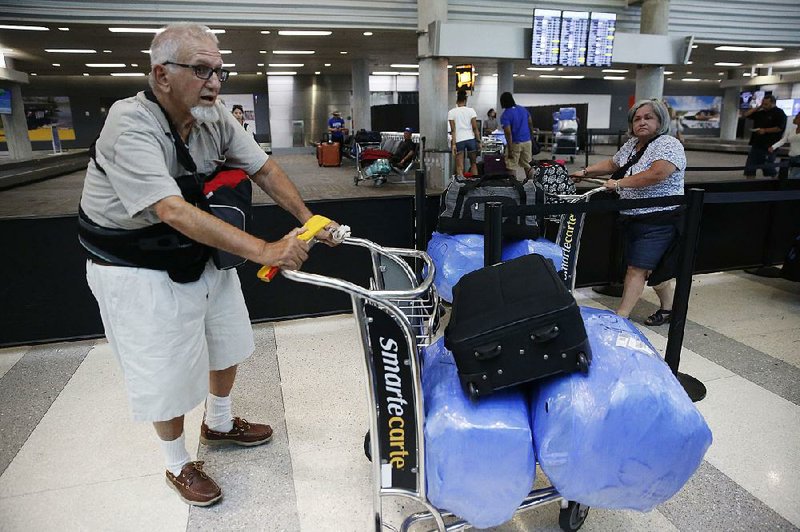WASHINGTON -- President Donald Trump's administration Tuesday ended some forms of U.S. travel to Cuba, banning cruise ships and a heavily used category of educational travel in an attempt to cut off cash to the island's communist government.
Cruise travel from the U.S. to Cuba began in May 2016 during President Barack Obama's opening with the island. It has become the most popular form of U.S. leisure travel to the island, attracting 142,721 people in the first four months of the year, a more than 300% increase over the same period last year. For travelers to Cuba, cruises offered a simple, one-stop, guaranteed-legal way to travel.
That now appears to be over.
"Cruise ships as well as recreational and pleasure vessels are prohibited from departing the U.S. on temporary sojourn to Cuba effective tomorrow," the Commerce Department said in a statement.
The new restrictions are part of a broader effort by the Trump administration to roll back the Obama-era efforts to restore normal relations between the United States and Cuba, which drew sharp criticism from the more hard-line elements of the Cuban-American community and their allies in Congress.
Treasury said the sanctions would take effect today after they are published in the Federal Register.
U.S. national security adviser John Bolton, who declared Cuba part of a "troika of tyranny " along with Nicaragua and Venezuela as he outlined plans for sanctions in November, said the new policy is intended to deny the Cuban government a vital source of revenue.
"The Administration has advanced the President's Cuba policy by ending 'veiled tourism' to Cuba and imposing restrictions on vessels," Bolton said on Twitter. "We will continue to take actions to restrict the Cuban regime's access to U.S. dollars."
The Cuban government imposed food rationing last month as a result of tightened U.S. sanctions and a drop in subsidized oil and other aid from Venezuela. For the Cuban government, cruise travel generated many millions of dollars a year in docking fees and payments for on-shore excursions, although those figures were never made public. Cuba also has become the most-requested destination for many South Florida-based cruise lines.
The government said it will allow anyone who has already paid for a trip to go ahead with it. But the process going forward for passengers isn't clear.
Cruise companies appeared to be caught off guard, with several, including Norwegian Cruise Lines and Royal Caribbean, urging ticketed passengers to be patient in response to queries on social media.
Royal Caribbean said it was canceling the Cuba stops on its cruises today and Thursday and would issue further guidance on future trips as soon as it was practical.
Cruise lines carrying passengers booked before Tuesday had been hoping that they could request specific federal permits to complete their trips to Cuba, said Pedro Freyre, a Miami-based attorney who represents Carnival and three other major cruise lines.
"For now, it's prohibited unless the cruise lines request a specific license," Freyre said. He said cruise lines had been trying to determine "if there's any opening there to at least complete trips that have been booked and passengers that have made travel plans."
Norwegian Cruise Line said in a statement that it was scrutinizing the new rules and consulting with lawyers and trade experts.
"We are closely monitoring these recent developments and any resulting impact to cruise travel to Cuba," Norwegian Cruise Line said in a statement. "We will communicate to our guests and travel partners as additional information becomes available."
Treasury Secretary Steve Mnuchin said the measures are a response to what it calls Cuba's "destabilizing role" in the Western Hemisphere, including support for the government of President Nicolas Maduro in Venezuela.
"This administration has made a strategic decision to reverse the loosening of sanctions and other restrictions on the Cuban regime," Mnuchin said. "These actions will help to keep U.S. dollars out of the hands of Cuban military, intelligence, and security services."
Along with the cruise ships, the U.S. will also now ban most private planes and boats from stopping in the island.
Commercial airline flights appear to be unaffected by the new measures and travel for university groups, academic research, journalism and professional meetings will continue to be allowed.
Information for this article was contributed by Andrea Rodriguez, Adriana Gomez-Licon and Ben Fox of The Associated Press.
A Section on 06/05/2019
